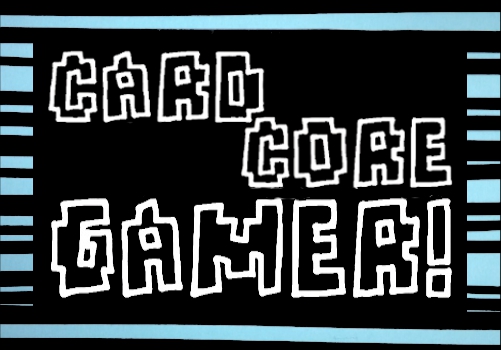Cardcore Gamer: App or Crapp?
There’s a new trend for app-assisted board games, but what does added technology bring to the table?
This week saw the release of Fantasy Flight Games’ much anticipated XCOM: The Board Game, which boasts a smartphone app as an integral part of its design. The idea of technology-assisted board games is nothing new, there have been games using VHS tapes, CDs, or electronics for decades, though mostly in the family and kids’ games sector. Apps are the latest addition to the list and as such games like Golem Arcana and Alchemists have had one foot out of the door by offering a way to play ‘offline’, but XCOM has both feet planted fully past the threshold, with no paper rulebook and definitely no mechanical work-around of any kind. The game has provoked strong reactions, some writing it off as gimmicky, or not a ‘proper’ board game and others dismissing those they see as Luddites and proclaiming apps to be the Next Big Thing, so naturally I decided it was time to get my thinkin’ brain out of its vat, give it a shake and see what fell out of it.
THE (probably) GOOD:
- Book keeping – An app can handle the mechanical tedium of upkeep, lessening downtime and allowing players to focus on their own turns and actually playing the game. This can also lessen the number of moving parts to keep track of, allowing for a cleaner, less cluttered game board.
- Hidden information and mechanics – The transparency of game mechanics can result in players manipulating the mechanics of the game system and ‘gaming the game’. This is especially common in co-operative games, where allowing something against the intention of the game can lead to a positive outcome, for example, leaving a monster alive can be more valuable than killing it. Apps can be more complex, subtle and varied than the basic flow chart logic that drives many co-op game systems and…
- Adaptation – A computer programme can adapt on the fly, reacting to the players to generate a more dynamic and responsive experience. This can work to create more thematically appropriate events, and to provide a more sophisticated ‘threat’, capable of changing based on the players’ decisions.
- No FAQ, no reprints – Unlike printed rulebooks, apps can be constantly updated to clarify wording, correct typos and misprints and to incorporate FAQ responses without players needing to keep on top of the latest game edition, rulebook version, or gameplay rulings.
- Manageable content – In-app updates and downloads can cut the physical size and cost of expansions by limiting the need for printed components. Expansions can also be integrated without replacement components, or additional rules sheets and could be added or removed easily without the need to shuffle in, or separate out different sets.
- Saving and sharing – Apps can be capable of saving a game, tracking a campaign, recording stats and moves and sharing them online. Board games could be paused, packed away and continued later, or played globally with minimal effort.
THE (potentially) BAD
- Usability – Learning a board game can be difficult enough, but the addition of an app adds a whole new potential stumbling block for the players. User-friendliness is all important and while the game may be great, an unintuitive app may sink the whole project.
- Time and technology – Board games are an enduring medium; barring damage or loss, a game can remain playable for decades, whereas technology can become obsolete with alarming speed. A game reliant on any technology can easily become unplayable once a service or device falls out of common use.
- Fewer interesting physical designs – One of the great things with board games are the amount of new, creative ideas born from the limitations of the physical game format. Designers are constantly finding innovative ways to use cards, tokens, dice and cubes. A reliance on apps may open a ‘path of least resistance’ for designers, leading to fewer interesting game mechanics.
- Tech support – An app needs a team dedicated to squashing bugs and ensuring a smooth gameplay experience. If support is sporadic, or entirely absent, crashes and errors could kill a game session, or worse, lose the progress of an entire campaign. How many companies will be able to guarantee ongoing attention is given to existing game apps?
- Tipping point – For many, the appeal of board games is precisely the lack of electronics, and to remove some of the tangible, tactile nature of table-top gaming is to remove what makes them unique. At what point does an app go from being an augmentation to being the game itself? In other words, at what point does it become more worthwhile just playing the entire game within an app?
So those are my mindblarts about app-based board games. Personally, while I can see the benefits of this newly emerging design element, I like to keep board games and video games as separate experiences, one social and physical and the other more personal, immersive and visceral. I will of course be giving XCOM a good shake down as soon as I can and you can bet your bottom that I’ll revisit my thoughts at a later time.
Until then, perhaps on your way home you will pass someone in the dark, and you will never know it, for they will be from outer space.


